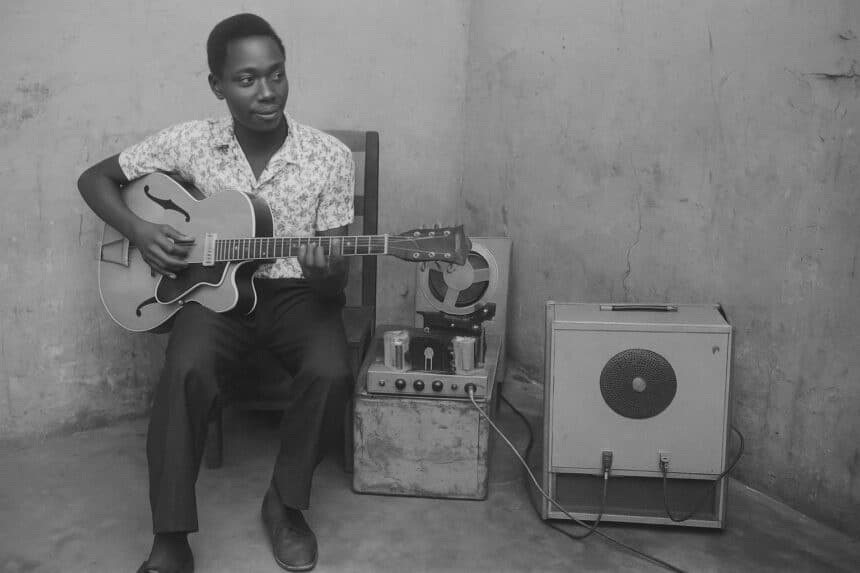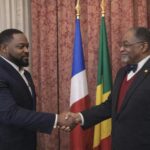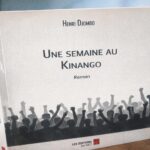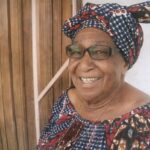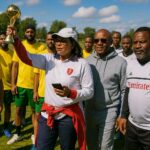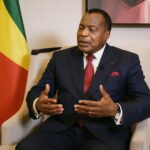A Night of Rumba at Inzia
Rumba riffs will echo across the banks of the Congo River on 27 September at 19:00, when the cosy Inzia restaurant turns into a concert hall. Diners are promised live strings, stories and a buffet that travels through the country’s many culinary regions (Le Courrier de Kinshasa, 2023).
The commemorative set marks exactly forty years since Nicolas “Dr Nico” Kassanda left the stage of life. Organisers say the timing is no coincidence: “Music keeps calendars better than any clock,” smiles bassist-director Gabriel Wadigesila.
Menu Celebrates Congo’s Tastes
Inzia’s usual river-fresh menu will widen for the occasion. Monique Fodderie, the owner, speaks of “a patch-work of provinces” served on plates: cassava leaves from Équateur, fish mwambe from Pool, and spicy tchaka from the Kasaï heartland—home of the late maestro.
A welcome cocktail kicks off the voyage, followed by an all-you-can-taste buffet that mirrors the evening’s playlist: rootsy, colourful and impossible to sample in one bite. “We want guests to feel the groove with their palate first,” Fodderie adds.
From Finger-Picking to Global Fame
Dr Nico picked up the guitar as a teenager in Léopoldville and quickly stunned older bandmates with buttery runs that seemed to race each other on the fretboard. By 20 he co-founded African Jazz, writing hooks still whistled in taxis today.
His fingerprints are all over modern soukous, yet purists also credit him with stretching the slower rumba into long, melodic conversations that crossed oceans. UNESCO’s 2021 inscription of Congolese rumba as intangible heritage echoes the path he helped clear.
A Guitar That Spoke to Hendrix
Legend says Jimi Hendrix hunted Dr Nico down during a Paris tour in the late sixties, curious about the African behind those liquid arpeggios. The meeting, briefly documented in French fan magazines, captures how a local style slipped into global rock vocabulary without a single press release.
Musicologist Manda Tshiluba notes, “Nico’s solos were like braided rivers—clean channels that somehow find each other again.” The analogy suits a musician whose homeland is literally split by a great river yet tied by shared melody.
Family Appeals for National Recognition
Liliane Kasanda, the guitarist’s daughter, applauds private tributes but regrets the silence of public institutions. “My father’s name opens doors abroad; at home we keep knocking,” she tells our newsroom.
Wadigesila echoes her concern: “We honour Dr Nico in masterclasses, but state stages would amplify his lesson tenfold.” Both hope this Brazzaville event nudges cultural offices toward a larger centennial plan.
Why His Chops Still Matter to Youth
Contemporary shredder Pytshens Kambilo, author of a forthcoming book on Congolese guitars, argues that Nico’s finger-picking remains the gold standard. “If you can play ‘Yo Saki’ clean, you can play anything,” he laughs, before turning serious about historical memory.
He wants curriculums to mention Congolese sound innovators alongside mathematicians and writers, believing such visibility sparks ambition in classrooms as much as on rehearsal porches.
Rumba Bridges the River
Brazzaville and Kinshasa face each other like twin amplifiers, their nightly music often indistinguishable across water. Rumba, born in colonial dance halls, now serves as cultural shorthand for both capitals. Honouring a Kinshasa star inside a Brazzaville venue illustrates that shared ownership.
Local promoter Armel Ngatsé views the gig as “one more handshake across the river,” especially timely as both cities push creative-industry cooperation. Football may divide clubs, he smiles, “but melody dribbles past borders.”
Practical Notes for Concert-Goers
Seats are limited to 120 and almost half reserved, so organisers advise calling ahead. Tickets bundle the buffet, cocktail and show for CFA 15 000. Dress code is “smart African chic”—colourful wax prints encouraged yet optional.
Inzia sits on rue Nabemba, a five-minute walk from Total City Centre taxis. Security staff will guide parking, while sanitiser stations remain in place as part of post-pandemic routine.
After the Final Chord
Once the last chord fades, organisers plan a short projection of rare archival footage, followed by an open mic where veteran musicians can swap memories. Wadigesila hints that recordings of the night may later drop online, allowing diaspora fans to join the celebration.
Liliane Kasanda hopes the momentum leads to an annual festival rotating between the two Congos, saying, “Let every September remind us a guitar can change a nation’s mood.”

